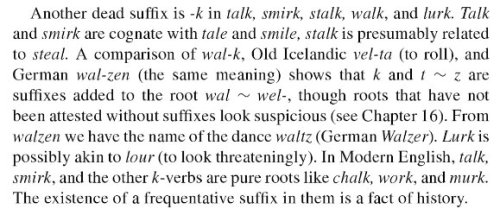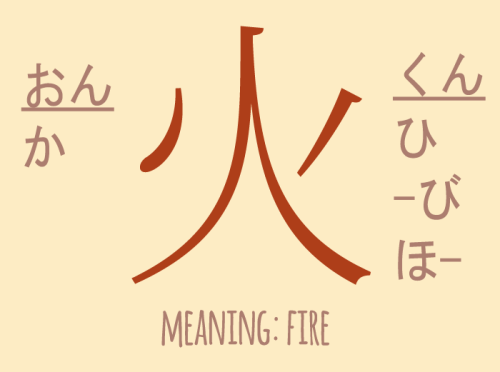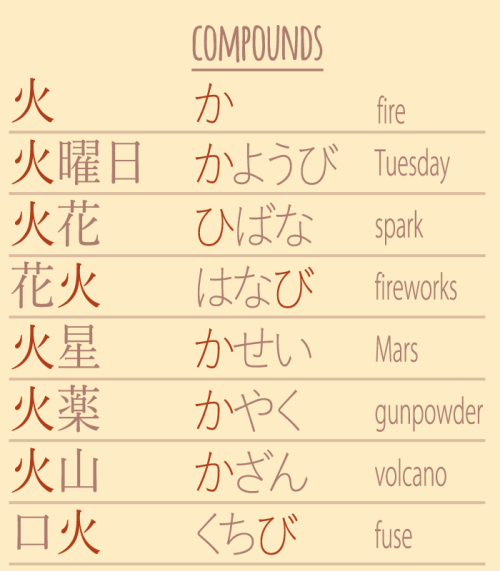You Owe It To Yourself To Keep Moving Forward.

you owe it to yourself to keep moving forward.
More Posts from Earthquakedeer and Others
白い目で見る
しろいめでみる
to look coldly at; to turn a cold shoulder
彼は性格が悪いのでみんなが白い目で見ています。 かれ は せいかく が わるい ので みんな が しろいめでみています。 Because he has a bad personality, everyone looks at him scornfully.
(人)を白い目で見る: look at someone with disapproval / regard someone with disdain
住む vs.暮らす
Both of these verbs means “to live” but there is a slight nuance in meaning.
住む「すむ」simply means to live somewhere, the act of of you residing in a house, apartment, etc
暮らす「くらす」means to live but focuses on the 生活 (daily life) and interactions with the place you live
例えば:
僕は東京に住んでいる。This sentence simply means that I live in Tokyo, that I existence and take residence in Tokyo.
僕は東京に暮らしている。This sentence means that I not only reside in Tokyo, but my daily life and interactions are in Tokyo. May imply that I also work there, my whole life is in Tokyo, more than just a place of existence.
Both words are interchangeable, so if you use one in place of the other it’s totally fine, they only really matter when you want to imply something more in the meaning. Also, 一人暮らし「ひとりぐらし」 is a noun that means to live alone or have a solitary life. Thought you guys might find that word useful!

「声かけてもらえると助かる」”I’d appreciate it if you could call me.”
〜てもらえると助かる (~てもらえるとたすかる) “I’d appreciate it if you could ~/it’d be helpful if you could ~”
This grammar point is a really polite way to ask someone to do something for you.
The 〜てもらえる part is from the potential form of one of the grammar points for receiving favors 〜てもらう So basically もらう (to receive) –> もらえる (to be able to receive) 〜てくれる can be used too but 〜てもらう has a more thankful feel to it and the verb 助かる means “to be saved” or “to be helped”
Ex: 明日、空港に迎えに来てもらえると助かります。 あした、くうこうにむかえにきてもらえるとたすかります。 I’d appreciate it if you could pick me up tomorrow from the airport.

The obsolete English -k suffix is my new favourite thing (source). It’s also the same -k that derives “hark, hearken” from “hear”.
German Verbs
A list of useful verbs because my knowledge of verbs in German is very limited
sein - to be haben - to have gehen - to go laufen - to walk rennen - to run fahren - to drive reisen - to travel schwimmen - to swim stehen - to stand sitzen - to sit machen - to make/do erschaffen - to create kochen - to cook essen - to eat trinken - to drink sprechen - to speak sagen - to say fragen - to ask hören - to hear zuhören - to listen mögen - to like wissen - to know (a concept) kennen - to know (a person) denken - to think glauben - to believe wollen - to want können - to be able to brauchen - to need lernen - to learn schreiben - to write lesen - to read lernen - to study verstehen - to understand vergessen - to forget erinnern - to remember üben - to practice sehen - to see beobachten - to watch tragen - to wear aufwachen - to wake up schlafen - to sleep arbeiten - to work kaufen - to buy spielen - to play benutzen - to use bringen - to bring kommen - to come zurückkommen - to return (come back) geben - to give bekommen - to receive nehmen - to take schauen - to look finden - to find treffen - to meet anfangen - to start beenden - to finish versuchen - to try entscheiden - to decide geboren werden - to be born sterben - to die leben - to live (a life) wohnen - to live (in an area) helfen - to help schicken - to send verändern - to change (alter)
[French]
If there are any mistakes or better translations please let me know!
Edit: I fixed a few mistakes

(after six)
always itching to look at memories, theirs and strangers’ waiting for the lights to wake before the dark curtain falls they hardly say their thanks and their sorry here never leave shapes of their absence, just their leftover warmth
伊達メガネ
伊達メガネ (だてめがね) - glasses that are just a fashion accessory, not something one needs because of bad eyesight
The first word, 伊達, means “elegance, having style, doing something just for show” and メガネ is, of course, “glasses”.

October/Halloween Vocabulary 十月とハロウィーン
十月: じゅうがつ (juugatsu) - October/ month 10
十月十日: とつきとおか (totsukitooka) - babies born on October 10, supposedly conceived on New Year’s Day/ normal gestation time (i.e. 9 months)
秋: あき (aki) - autumn/ fall
草枯れ: くさがれ (kusagare) - autumn/ withering of the grass
秋日: しゅうじつ (shuujitsu) - autumn day/ autumn
紅葉: こうよう (kouyou) - autumn colors/ leaves changing color/ leaves turning red/ red leaves/ leaves turning yellow/ yellow leaves
紅葉: もみじ (momiji) - (Japanese) maple (Acer japonicum)/ venison
秋季: しゅうき (shuuki) - autumn season
秋風: あきかぜ (akikaze) - autumn breeze
秋色: しゅうしょく (shuushoku) - autumn scenery
紅葉狩り: もみじがり (momijigari) - autumn-leaf viewing
オカルティック (okarutikku) - occult/ spooky/ eerie
気味悪い: きみわるい (kimiwaru) - unpleasant/ uncomfortable/ creepy/ spooky
お化けの話: おばけのはなし (obakenohanashi) - spooky tale/ ghost story
物の怪: もののけ (mononoke) - (vengeful) ghost/ specter/ spectre
鬼: おに (oni) - oni, ogre, demon/ spirit of a deceased person/ ogre-like person (i.e. fierce, relentless, merciless, etc.)
魔: ま (ma) - demon/ devil/ evil spirit/ evil influence/ someone who habitually performs some negative act
魔女: まじょ (majo) - witch
南瓜: かぼちゃ (kabocha) - pumpkin (Cucurbita species)/ squash
お菓子: おかし (okashi) - confections/ sweets/ candy
キャンディ (kyandi) - candy
コスプレショー ( kosupuresho) - costume party
コスチュームプレー (kosuchu-mupure-) - cosplay/ period drama, costume drama, costume play
Küchenwaren - Kitchen supplies
der Beutel – bag die Flasche - bottle der Flaschenöffner – bottle opener das Becken – bowl die Schachtel - box die Kuchenform – cake pans die Dose – can der Büchsenöffner – can opener die Tüte – carton die Küchenreibe – cheese grater die Essstäbchen – chopsticks die Kaffeekanne – coffee pot das Sieb – colander, strainer der Korkenzieher – corkscrew die Tasse – cup das Schneidbrett – cutting board die Schüssel – dish das Geschirrtuch – dish towel die Gabel – fork die Bratpfanne – frying pan das Glas – glass der Eiswürfelbehälter – ice tray die Flasche – jar der Krug – jug der Kessel – kettle das Messer – knife der Deckel - lid die Messbecher – measuring cup die Messlöffel – measuring spoons die Serviette – napkin der Topfhandschuh – oven mitt der Teller – plate der Topf – pot der Schnellkochtopf – pressure cooker das Nudelholz – rolling pin der Kochtopf – saucepan die Untertasse – saucer das Besteck – silverware der Spachtel – spatula der Löffel – spoon der Vorratstopf – stock pot der Tisch – table die Tischdecke – tablecloth der Teekessel – tea kettle die Tube – tube der Schneebesen - whisk


some compounds of one of my favourite kanji, 火
-
 tech13omega liked this · 3 weeks ago
tech13omega liked this · 3 weeks ago -
 death-will-reign reblogged this · 9 months ago
death-will-reign reblogged this · 9 months ago -
 parisjackscn liked this · 1 year ago
parisjackscn liked this · 1 year ago -
 amnwolfdog liked this · 1 year ago
amnwolfdog liked this · 1 year ago -
 everglowy liked this · 1 year ago
everglowy liked this · 1 year ago -
 littlevnavy reblogged this · 1 year ago
littlevnavy reblogged this · 1 year ago -
 littlevnavy liked this · 1 year ago
littlevnavy liked this · 1 year ago -
 lencilenlen reblogged this · 2 years ago
lencilenlen reblogged this · 2 years ago -
 eunnui liked this · 2 years ago
eunnui liked this · 2 years ago -
 softshinee liked this · 2 years ago
softshinee liked this · 2 years ago -
 superblessedmusic liked this · 2 years ago
superblessedmusic liked this · 2 years ago -
 falling-universe reblogged this · 2 years ago
falling-universe reblogged this · 2 years ago -
 dashingwishes reblogged this · 2 years ago
dashingwishes reblogged this · 2 years ago -
 thebettermeee reblogged this · 2 years ago
thebettermeee reblogged this · 2 years ago -
 carolannduffy reblogged this · 2 years ago
carolannduffy reblogged this · 2 years ago -
 niiwa-angel liked this · 3 years ago
niiwa-angel liked this · 3 years ago -
 divinegoddess13 liked this · 4 years ago
divinegoddess13 liked this · 4 years ago -
 littlestbluebird reblogged this · 4 years ago
littlestbluebird reblogged this · 4 years ago -
 vivsvigour reblogged this · 4 years ago
vivsvigour reblogged this · 4 years ago -
 sassymagicalexiasstuff reblogged this · 4 years ago
sassymagicalexiasstuff reblogged this · 4 years ago -
 fangirlalexia liked this · 4 years ago
fangirlalexia liked this · 4 years ago -
 flowerbbybananamilk liked this · 4 years ago
flowerbbybananamilk liked this · 4 years ago -
 the-vlkoslak liked this · 4 years ago
the-vlkoslak liked this · 4 years ago -
 zdaibani1 reblogged this · 5 years ago
zdaibani1 reblogged this · 5 years ago -
 flungurbstothewind liked this · 5 years ago
flungurbstothewind liked this · 5 years ago -
 loveeconquersall reblogged this · 5 years ago
loveeconquersall reblogged this · 5 years ago -
 rufio-89 liked this · 5 years ago
rufio-89 liked this · 5 years ago -
 ohreademsee liked this · 5 years ago
ohreademsee liked this · 5 years ago -
 motivati0nforme reblogged this · 5 years ago
motivati0nforme reblogged this · 5 years ago -
 mpotato liked this · 5 years ago
mpotato liked this · 5 years ago -
 yellowstonefire reblogged this · 5 years ago
yellowstonefire reblogged this · 5 years ago -
 viveycious reblogged this · 5 years ago
viveycious reblogged this · 5 years ago -
 alonegirl32 liked this · 5 years ago
alonegirl32 liked this · 5 years ago -
 sagittarivss liked this · 5 years ago
sagittarivss liked this · 5 years ago -
 fowlerpower reblogged this · 5 years ago
fowlerpower reblogged this · 5 years ago -
 71toneb reblogged this · 5 years ago
71toneb reblogged this · 5 years ago
Just a person learning Japanese. Self-learner. If you're also studying Japanese and want to practice with someone (and you're also very much a beginner) then message me! はじめまして! さびーなです。よとしく!
196 posts